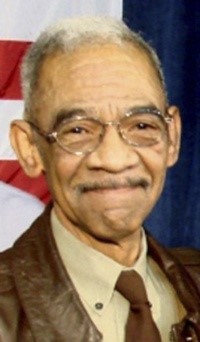***previous*** — ***next***
Dear Mr. Smith,
I recently read your chronology of Crater Lake National Park. I noticed that William Gladstone Steel is credited as being the founder of Crater Lake National Park. My mother, Anna Curtis (1898 – 1973) was born and raised in Stafford, Monroe County, Ohio, the birthplace of William Gladstone Steel (1854 – 1934). I spent the summers of my childhood in Stafford with my great uncle Ed Curtis and have been associated with the tiny community all of my life. Stafford was founded by Abolitionist William Steel Sr., father of William Gladstone Steel, sometime around 1839 and quickly became an Ohio Underground Railroad Station.
A long story made short: In 1848 my great grandfather, John Curtis, along with two of his brothers, ran off (from a plantation in) Rockingham County, Virginia and ended up crossing the Ohio River where they became lost in the vicinity of Stafford. They were discovered living in a cave by William Steel Sr. and some other Abolitionists in the Stafford area. William Steel Sr. made arrangements with the slave owner of John Curtis, and paid for John’s freedom. John Curtis then worked for William Steel in Stafford for some years to repay the debt. John Curtis also worked on the Underground Railroad until the Civil War, then bought a farm right outside Stafford where he raised his family.
While growing up, I was often in the home where William G. Steel was born! Unfortunately the home, with its secret rooms and crawl passages was demolished a few years back. It appears that the Steel family left a lot of positive history in their wake! The attached photo shows a corner of the store that was once owned by William Steel Sr. and possible adjacent house is where William Gladstone was born.
If you are interested in developing this story please contact me.
Sincerely,
Henry Robert Burke

Henry Robert Burke | 1940-2012: Historian shared knowledge of Civil War era
Henry Robert Burke was a published author, volunteer lecturer and newspaper columnist.
The glimpses of history that Henry Robert Burke brought to light can be seen around southeastern Ohio.
Thanks to his research, visitors to the Belpre Historical Society’s museum along the Ohio River can view the southeastern Ohio Underground Railroad exhibit.
Because of his volunteer classroom lectures, local students have learned more about Underground Railroad sites in their area.
The area historian and author died of a heart attack Saturday in Marietta Memorial Hospital. Burke was 72 and lived in Marietta.
A memorial service is scheduled for 1 p.m. Friday in the Leavitt funeral home in Belpre.
Born in Columbus, Burke served nine years in the U.S. Army, part of it stationed in West Germany during the Cold War. He also worked for 35 years as a construction foreman.
He researched and wrote about the Underground Railroad, the clandestine route of safe houses and abolitionists that led escaped slaves to freedom.
He also wrote about the approximately 200 African-American men from Washington County and surrounding counties known to have enlisted to fight in the Civil War with the United States Colored Infantry.
He researched other Civil War history, profiled area historical figures, and wrote columns for Marietta newspapers.
Burke was recognized for his scholarship by the Ohio legislature and historical and educational organizations.
He was a humble man who enjoyed sharing his knowledge with others, said Amanda Mayle of Chesterhill in Morgan County, who met Burke through a shared interest in Underground Railroad history.
“The world has just lost a great treasure,” she said yesterday.
Thanks to his knowledge and passion about the Underground Railroad and life in Civil War-era Ohio, Ohioans have a fuller understanding of this time in history, Andy Verhoff, local history coordinator at the Ohio Historical Society, wrote in an email yesterday.
“It’s not just his knowledge, however, that made him stand out — it was his desire to share it, and that he did so generously and good-naturedly,” Verhoff wrote.
Burke’s website includes his work at www.henryrobertburke.com.
***menu***
***previous*** — ***next***

